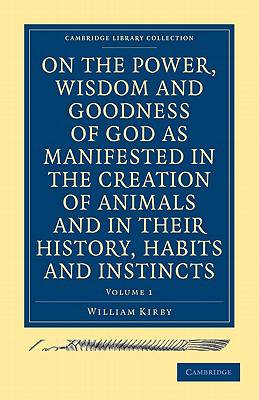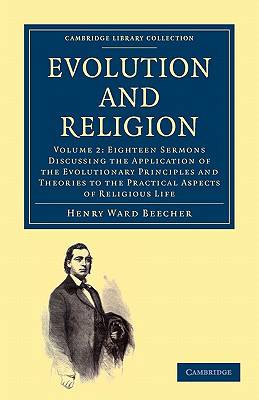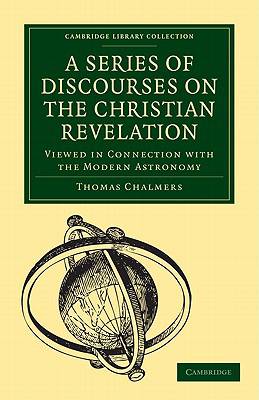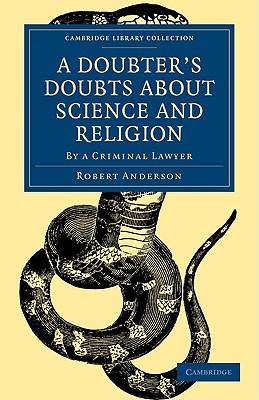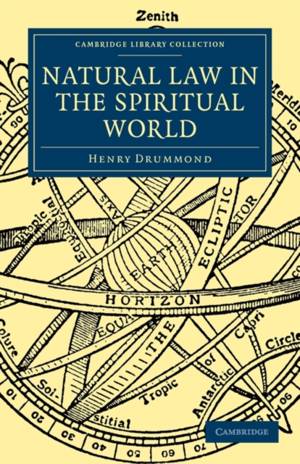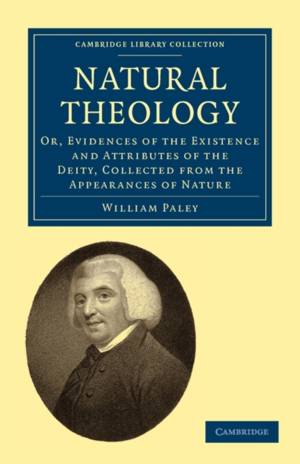
En raison d'une grêve chez bpost, votre commande pourrait être retardée. Vous avez besoin d’un livre rapidement ? Nos magasins vous accueillent à bras ouverts !
- Retrait gratuit dans votre magasin Club
- 7.000.000 titres dans notre catalogue
- Payer en toute sécurité
- Toujours un magasin près de chez vous
En raison de la grêve chez bpost, votre commande pourrait être retardée. Vous avez besoin d’un livre rapidement ? Nos magasins vous accueillent à bras ouverts !
- Retrait gratuit dans votre magasin Club
- 7.000.0000 titres dans notre catalogue
- Payer en toute sécurité
- Toujours un magasin près de chez vous
Résultats pour "Cambridge Library Collection - Science and Religion"
-
Man on His Nature
Charles Scott Sherrington, Sherrington Charles Scott
- Livre broché | Anglais | Cambridge Library Collection - Science and Religion
- Based on the Gifford Lectures of 1937-8 in Edinburgh, Nobel Prize winner Charles Sherrington's 1940 study addresses the nature of the mind and its rel... Savoir plus
44,95 €Livraison 1 à 2 semaines44,95 €Livraison 1 à 2 semaines -
The Religious Philosopher 2 Volume Set
Bernard Nieuwentyt
- Livre | Anglais | Cambridge Library Collection - Science and Religion
- Originally published in Dutch in 1715, this two-volume work by the philosopher and theologian Bernard Nieuwentyt (1654-1718) is reissued here in the 1... Savoir plus
65,95 €Livraison sous 1 à 4 semaines65,95 €Livraison sous 1 à 4 semaines -
A View of the Evidences of Christianity 2 Volume Paperback Set
William Paley
- Livre | Anglais | Cambridge Library Collection - Science and Religion
- This two-volume set by the philosopher and theologian William Paley, published in 1794, was considered so important that it was required reading for C... Savoir plus
81,45 €Livraison 1 à 2 semaines81,45 €Livraison 1 à 2 semaines -
On the Power, Wisdom and Goodness of God as Manifested in the Creation of Animals and in Their History, Habits and Instincts 2 Volume Paperback Set
William Kirby
- Livre | Anglais | Cambridge Library Collection - Science and Religion
- This extensively illustrated two-volume treatise, published in 1835, is one of a series commissioned by the Royal Society with funds bequeathed by the... Savoir plus
100,95 €Livraison 1 à 2 semaines100,95 €Livraison 1 à 2 semaines -
The Positive Philosophy of Auguste Comte
Auguste Comte
- Livre broché | Anglais | Cambridge Library Collection - Science and Religion
- The Positive Philosophy of Auguste Comte is a condensed English version of the French philosopher's controversial work, freely translated by Harriet M... Savoir plus
50,45 €Livraison 1 à 2 semaines50,45 €Livraison 1 à 2 semaines -
More Worlds Than One
David Brewster
- Livre broché | Anglais | Cambridge Library Collection - Science and Religion
- Sir David Brewster (1781-1868) was a distinguished scientist and inventor who frequently turned the results of his research to practical ends; his wor... Savoir plus
30,95 €Livraison 1 à 2 semaines30,95 €Livraison 1 à 2 semaines -
Evolution and Religion
Henry Ward Beecher
- Livre broché | Anglais | Cambridge Library Collection - Science and Religion
- Henry Ward Beecher was an American Congregationalist minister, social reformer, journal editor and orator. People flocked to hear his lecture tours an... Savoir plus
30,95 €Livraison 1 à 2 semaines30,95 €Livraison 1 à 2 semaines -
A Series of Discourses on the Christian Revelation
Thomas Chalmers
- Livre broché | Anglais | Cambridge Library Collection - Science and Religion
- In 1817 the Scottish mathematician and churchman Thomas Chalmers (1780-1847), who was later invited to write one of the Bridgewater Treatises (also re... Savoir plus
32,45 €Livraison 1 à 2 semaines32,45 €Livraison 1 à 2 semaines -
The Ascent of Man
Henry Drummond
- Livre broché | Anglais | Cambridge Library Collection - Science and Religion
- The Lowell Institute in Boston, Massachusetts, founded in 1836, supports an annual series of distinguished lectures. Henry Drummond, the influential S... Savoir plus
43,45 €Livraison 1 à 2 semaines43,45 €Livraison 1 à 2 semaines -
A History of the Warfare of Science with Theology in Christendom 2 Volume Paperback Set
Andrew Dickson White
- Livre | Anglais | Cambridge Library Collection - Science and Religion
- First published in 1896, this two-volume history of the conflict between theology and science was widely recognised, along with John William Draper's ... Savoir plus
86,95 €Livraison 1 à 2 semaines86,95 €Livraison 1 à 2 semaines -
First Principles
Herbert Spencer
- Livre broché | Anglais | Cambridge Library Collection - Science and Religion
- In 1862, the British philosopher Herbert Spencer (1820-1903) published this preamble to a planned series of publications on biology, psychology, socio... Savoir plus
101,45 €Livraison 2 à 3 semaines101,45 €Livraison 2 à 3 semaines -
A Doubter's Doubts about Science and Religion
Robert Anderson
- Livre broché | Anglais | Cambridge Library Collection - Science and Religion
- This 1889 volume was published anonymously and later ascribed to Robert Anderson, a barrister and theological writer who became Assistant Commissioner... Savoir plus
22,45 €Livraison 1 à 2 semaines22,45 €Livraison 1 à 2 semaines -
Man and His Dwelling Place
James Hinton
- Livre broché | Anglais | Cambridge Library Collection - Science and Religion
- History remembers James Hinton as a successful surgeon and author of books and articles on physiology and ethics. A gifted thinker and communicator, H... Savoir plus
43,45 €Livraison 1 à 2 semaines43,45 €Livraison 1 à 2 semaines -
The Riddle of the Universe at the Close of the Nineteenth Century
Ernst Heinrich Philipp August Haeckel
- Livre broché | Anglais | Cambridge Library Collection - Science and Religion
- Originally trained as a physician, the biologist and thinker Ernst Haeckel (1834-1919), was an evolutionist who remained sceptical of natural selectio... Savoir plus
39,45 €Livraison 1 à 2 semaines39,45 €Livraison 1 à 2 semaines -
History of the Conflict between Religion and Science
John William Draper
- Livre broché | Anglais | Cambridge Library Collection - Science and Religion
- This fascinating text, first published in 1875, is a key early example of the conflict thesis. This theory expounds the premise of an intrinsic confli... Savoir plus
39,45 €Livraison 1 à 2 semaines39,45 €Livraison 1 à 2 semaines -
Natural Law in the Spiritual World
Henry Drummond
- Livre broché | Anglais | Cambridge Library Collection - Science and Religion
- Henry Drummond was a Scottish scientist, Free Church minister, explorer and evangelist who became one of the most influential religious figures of the... Savoir plus
43,45 €Livraison 1 à 2 semaines43,45 €Livraison 1 à 2 semaines -
Evolution
Joseph Le Conte
- Livre broché | Anglais | Cambridge Library Collection - Science and Religion
- Joseph Le Conte was the first geologist, natural historian and botanist to be appointed to the University of California in 1869. He founded the succes... Savoir plus
39,45 €Livraison 1 à 2 semaines39,45 €Livraison 1 à 2 semaines -
A View of the Evidences of Christianity
William Paley
- Livre broché | Anglais | Cambridge Library Collection - Science and Religion
- This two-volume book by the philosopher and theologian William Paley, published in 1794, was considered so important that it was required reading for ... Savoir plus
40,95 €Livraison 1 à 2 semaines40,95 €Livraison 1 à 2 semaines -
Modern Ideas of Evolution as Related to Revelation and Science
John William Dawson
- Livre broché | Anglais | Cambridge Library Collection - Science and Religion
- Darwin's theory of evolution generated a storm of controversy within the scientific community in the later nineteenth century, and Sir J. William Daws... Savoir plus
29,45 €Livraison 1 à 2 semaines29,45 €Livraison 1 à 2 semaines -
From Comte to Benjamin Kidd
Robert Mackintosh
- Livre broché | Anglais | Cambridge Library Collection - Science and Religion
- Robert Mackintosh (1858-1933), a professor at the Congregationalist Lancashire Independent College, traces the influence of biology and evolutionism o... Savoir plus
33,95 €Livraison 1 à 2 semaines33,95 €Livraison 1 à 2 semaines -
Man and the Universe
Oliver Lodge
- Livre broché | Anglais | Cambridge Library Collection - Science and Religion
- The physicist Sir Oliver Lodge (1851-1940) made significant contributions to the study of electrons, electromagnetic waves, X-rays, radio and telegrap... Savoir plus
75,95 €Livraison 2 à 3 semaines75,95 €Livraison 2 à 3 semaines -
Natural Theology
William Paley
- Livre broché | Anglais | Cambridge Library Collection - Science and Religion
- William Paley (1743-1805) argues for the existence of God as the intelligent creator of the world in this, his last book, published in 1802. He builds... Savoir plus
50,45 €Livraison 1 à 2 semaines50,45 €Livraison 1 à 2 semaines -
Astronomy and General Physics Considered with Reference to Natural Theology
William Whewell
- Livre broché | Anglais | Cambridge Library Collection - Science and Religion
- A leading British intellectual of the Victorian era, William Whewell (1794-1866) was a contemporary and adviser of Herschel, Darwin and Faraday. A geo... Savoir plus
78,95 €Livraison 2 à 3 semaines78,95 €Livraison 2 à 3 semaines -
Other Worlds Than Ours
Richard Anthony Proctor
- Livre broché | Anglais | Cambridge Library Collection - Science and Religion
- The English astronomer Richard A. Proctor was already a well-known populariser of science when he published Other Worlds Than Ours in 1870, joining a ... Savoir plus
37,95 €Livraison 1 à 2 semaines37,95 €Livraison 1 à 2 semaines








